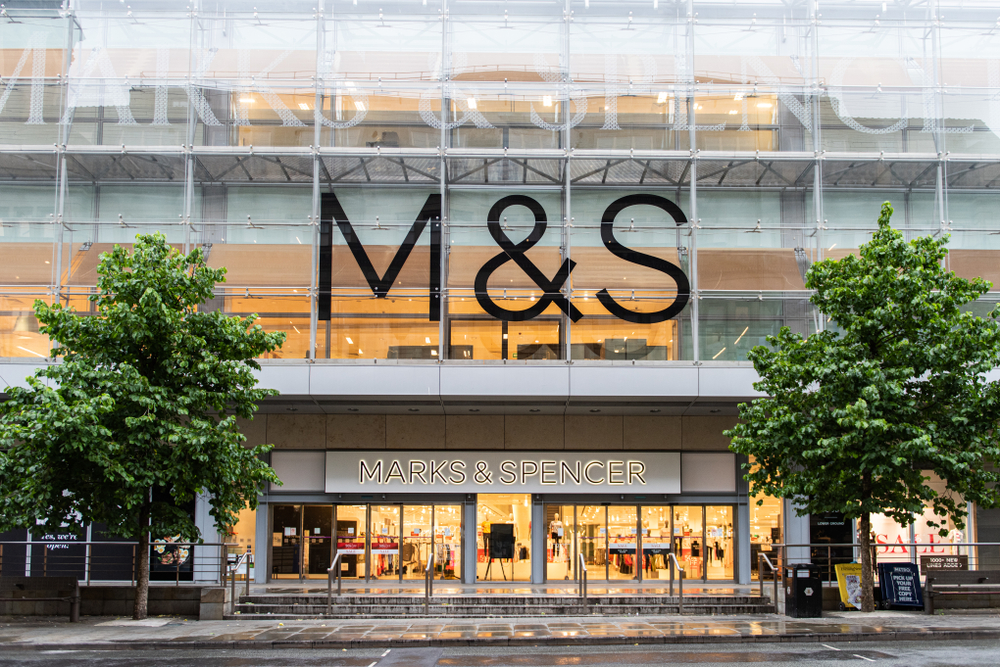Assessment of the retail market in the UK for 2019 makes grim reading: total sales for 2019 decreased by 0.1%, compared with 1.2% growth in 2018, making it the worst year on record, says the British Retail Consortium (BRC).
While online food and non-food sales were up, online non-food sales increased by 12.8% in December, against a growth of 5.8% in December 2018. Taking November and December together to iron out the Black Friday distortions – caused by the peak week falling at the very end of November and spilling into December – online non-food sales increased 2.6%, which is lower than the 12 month average of 3.3%.
Non-food online penetration rate increased from 31.2% in December 2018 to 34.5% this December. Over the two months of November and December, the online penetration rate was 34.2% for 2019, against 32.4% for 2018, a 1.8 percentage points increase.
Outside of online, things look even more grim. On a total basis, sales increased by 1.9% in December, against a flat 0.0% in December 2018. The three month and 12 month averages were -0.4% and -0.1% respectively. Even taking November and December together to iron out the Black Friday distortions, total sales declined 0.9% compared with the same period in 2018.
UK retail sales increased by 1.7% on a like-for-like basis from December 2018, when they had decreased 0.7% from the preceding year. The three month and 12 month averages were -0.9% and 0.5% respectively. Again, taking November and December together to iron out the Black Friday distortions, like-for-like sales declined 1.2% compared with the same period in 2018.
Over the three months to December, in-store sales of non-food items declined 3.5% on a Total and 3.8% on a like-for-like basis. This is worse than the 12-month Total average decline of 3.1%, says BRC.
Over the three months to December, food sales were a flat 0.0% on a like-for-like basis and increased 0.7% on a Total basis. This is below the 12-month Total average growth of 1.4%.
Over the three-months to December, non-food retail sales in the UK decreased by 1.6% on a like-for-like and 1.4% on a total basis. This is below the 12-month total average decrease of 1.3%. For the month of December, non-food was in growth year-on-year, but positively distorted by the timing of Black Friday.
Helen Dickinson OBE, Chief Executive, British Retail Consortium, comments: “2019 was the worst year on record and the first year to show an overall decline in retail sales. This was also reflected in the CVAs, shop closures and job losses that the industry suffered in 2019. Twice the UK faced the prospect of a no deal Brexit, as well as political instability that concluded in a December General Election – further weakening demand for the festive period. The industry continues to transform in response to the changing technologies and shopping habits. Black Friday overtook Christmas as the biggest shopping week of the year for non-food items. Retailers also faced challenges as consumers became both more cautious and more conscientious as they went about their Christmas shopping.”
Dickinson adds: “Looking forward, the public’s confidence in Britain’s trade negotiations will have a big impact on spending over the coming year. There are many ongoing challenges for retailers: to drive up productivity, continue to raise wages, improve recyclability of products and cut waste. However, this takes resources, so it is essential the new Government makes good on its promise to review, and then reform the broken business rates system which sees retail pay 25% of all business rates, while accounting for 5% of the economy.”
Paul Martin, UK Head of Retail, KPMG, believes that the figures show just how powerful online has now become. “At first glance retailers’ relentlessness paid off in December, with total sales up 1.9%,” he says. “However, the later timing of Black Friday will have skewed the outcome. If looking at November and December combined, sales actually declined by 0.9%. Consumers clearly favoured logging on to walking in, with online sales up 12.8% in December. However, if taking a two month average, growth online was clearly muted at only 2.6.%.”
Martin adds: “Grocery is usually a winner during the festive season, although it is important to highlight that growth has been weakening recently and for many players Christmas did not deliver the results it has in the past. All growth will be welcome, although the true performance of Christmas trading is still to be determined. The cost of customer returns must not be overlooked. That’s especially true as online fulfilment already costs retailers a pretty penny. Christmas trading reports will likely be mixed, but those that have truly performed well will have managed margin and costs well over both the Christmas period and beyond.”
Paul Kirkland, Director of Retail & Hospitality at Fujitsu UK, comments: “It shouldn’t come as a surprise to retailers that total sales fell in 2019; from declining footfall as online competitors grow their market share, to the continued impact of the UK’s political and economic uncertainty, it was a particularly difficult consumer environment to navigate. But in the face of changing consumer habits and expectations, retailers have struggled to innovate and keep pace with the rapid transformation we’re seeing across the sector. We’ve seen this lead to the closure and administration of many high-street brands as a result. It’s time for the entire industry to dramatically rethink how we can revive the high-street and drive future revenue and growth.”
Kirkland says: “In fact, our recent research found that 40% of UK customers feel that the high-street has been too slow in adopting technologies, showing just how much room for growth there is for retailers to take advantage of new digital solutions. For example, by leveraging predictive analytics to build a responsive and speedy delivery network to using augmented and virtual reality to immerse people in an engaging experience.
On a more positive note, Kirkland adds: “While 2020 looks set to present continued challenges for retailers in the UK, they have the opportunity to focus on using technology to match the immediacy, personalisation and ease of online shopping to reinvigorate the in-store experience and inspire people to return to the high street.”








